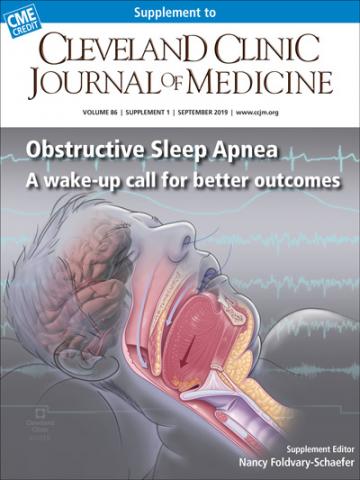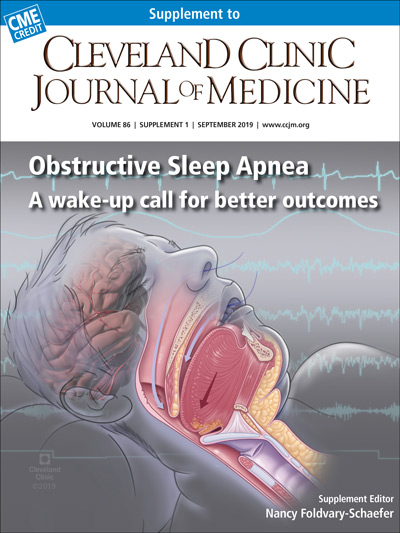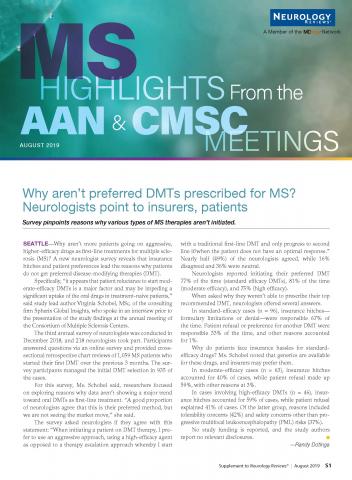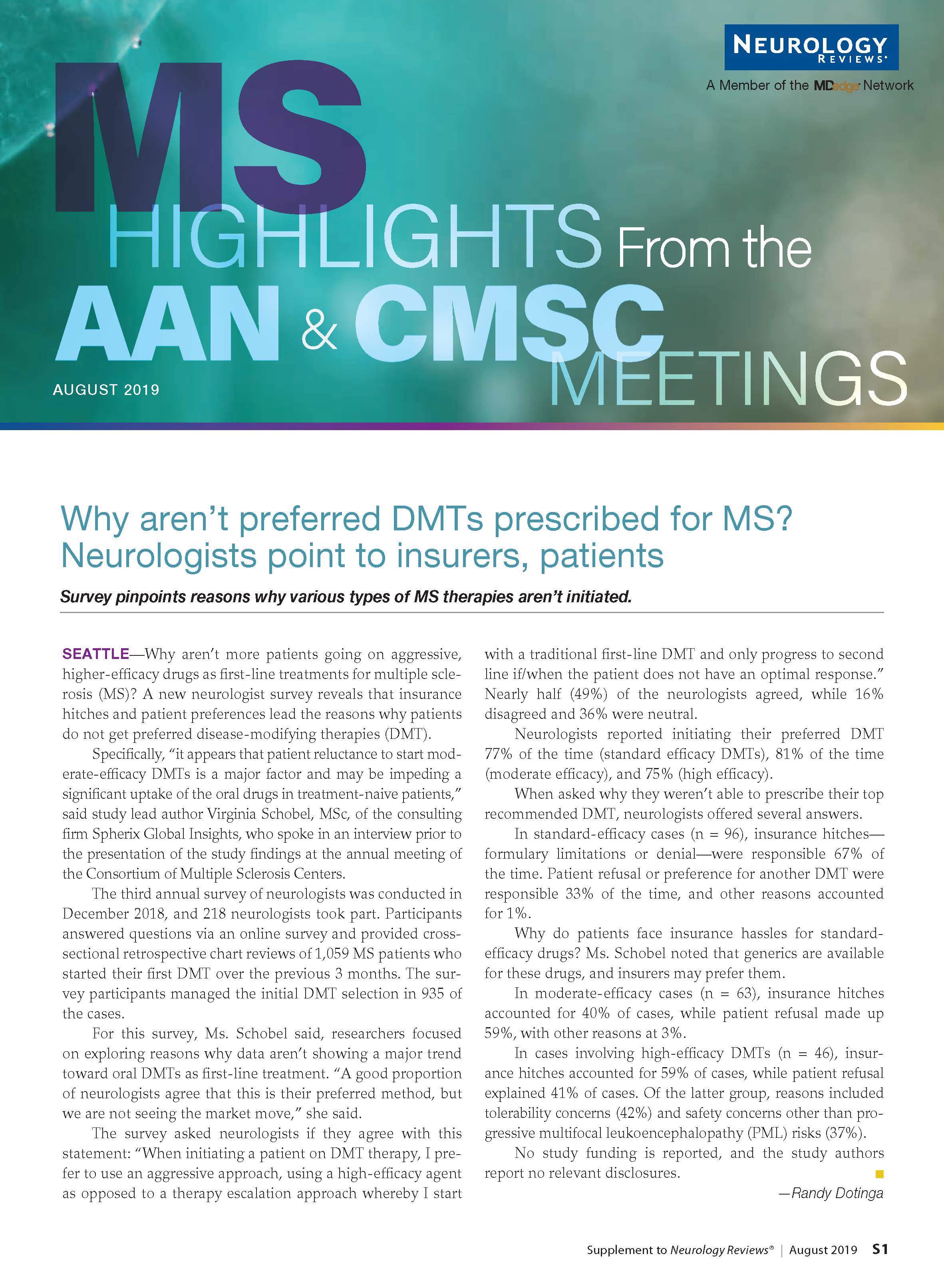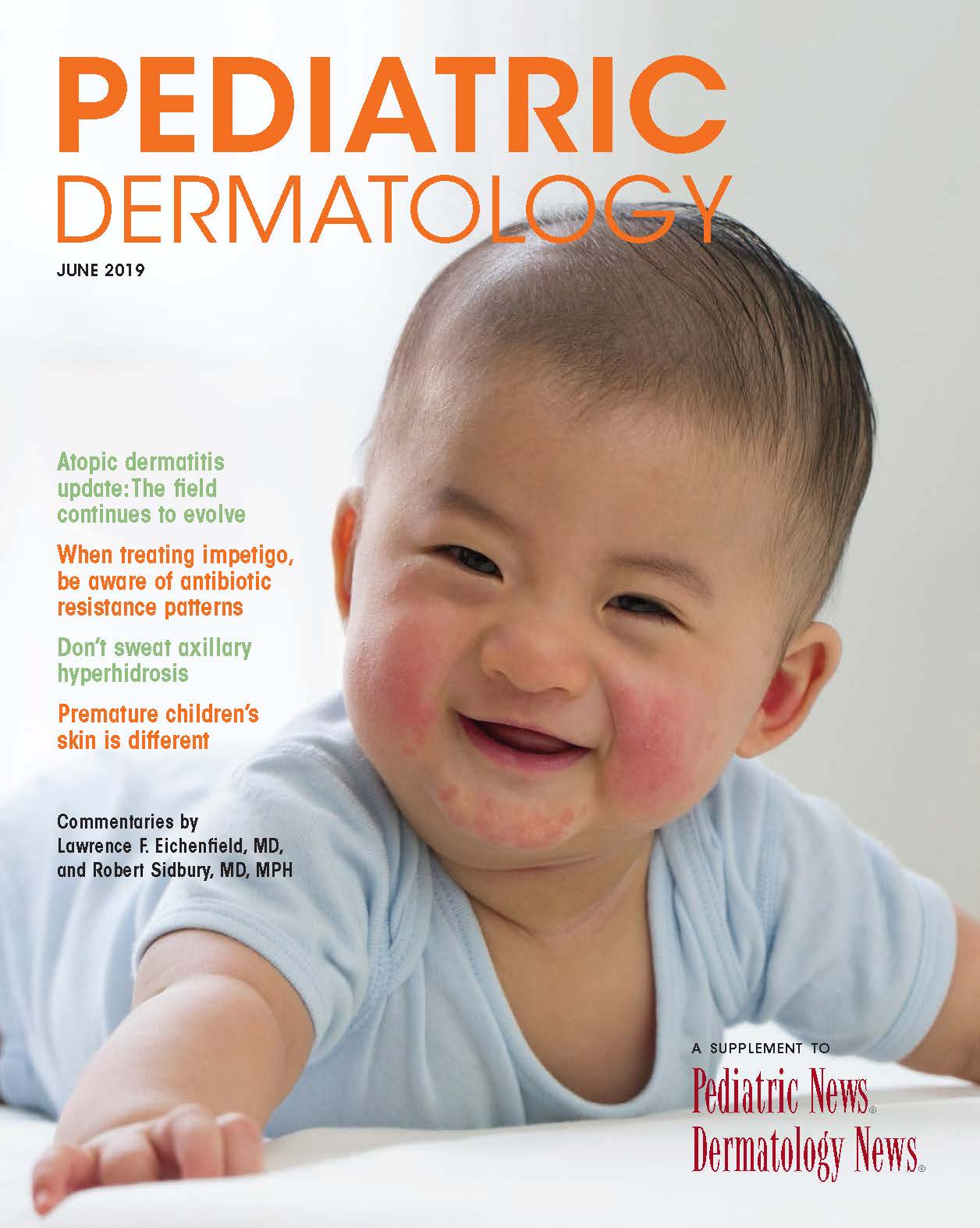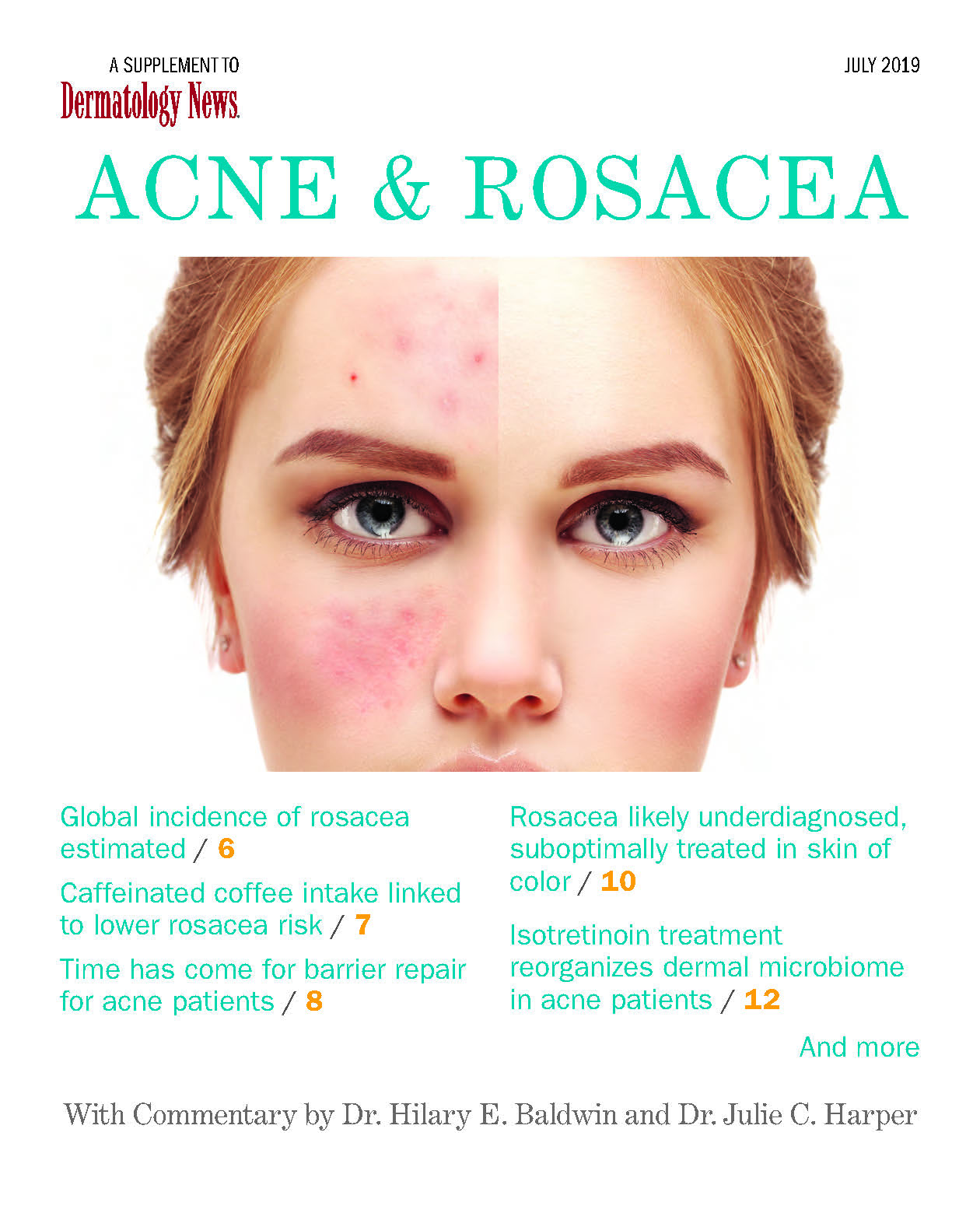User login
Obstructive Sleep Apnea
Supplement Editor:
Nancy Foldvary-Schaefer
Contents
Introduction—Obstructive sleep apnea: A wake-up call for better outcomes
Nancy Foldvary-Schaefer
Obstructive sleep apnea basics
Jessica Vensel Rundo
Sleep apnea and the heart
Reena Mehra
Beyond heart health: Consequences of obstructive sleep apnea
Harneet K. Walia
Positive airway pressure: Making an impact on sleep apnea
Colleen G. Lance
Alternative interventions for obstructive sleep apnea
Tina Waters
Click for related Cleveland Clinic CME activities.
Supplement Editor:
Nancy Foldvary-Schaefer
Contents
Introduction—Obstructive sleep apnea: A wake-up call for better outcomes
Nancy Foldvary-Schaefer
Obstructive sleep apnea basics
Jessica Vensel Rundo
Sleep apnea and the heart
Reena Mehra
Beyond heart health: Consequences of obstructive sleep apnea
Harneet K. Walia
Positive airway pressure: Making an impact on sleep apnea
Colleen G. Lance
Alternative interventions for obstructive sleep apnea
Tina Waters
Click for related Cleveland Clinic CME activities.
Supplement Editor:
Nancy Foldvary-Schaefer
Contents
Introduction—Obstructive sleep apnea: A wake-up call for better outcomes
Nancy Foldvary-Schaefer
Obstructive sleep apnea basics
Jessica Vensel Rundo
Sleep apnea and the heart
Reena Mehra
Beyond heart health: Consequences of obstructive sleep apnea
Harneet K. Walia
Positive airway pressure: Making an impact on sleep apnea
Colleen G. Lance
Alternative interventions for obstructive sleep apnea
Tina Waters
Click for related Cleveland Clinic CME activities.
MS Highlights From the AAN & CMSC Annual Meetings
This supplement to Neurology Reviews compiles MS-related news briefs from the 2019 annual meetings the American Academy of Neurology, held in Philadelphia in early May, and the Consortium of Multiple Sclerosis Centers, held in Seattle in late May.
Click here to read the supplement.
This supplement to Neurology Reviews compiles MS-related news briefs from the 2019 annual meetings the American Academy of Neurology, held in Philadelphia in early May, and the Consortium of Multiple Sclerosis Centers, held in Seattle in late May.
Click here to read the supplement.
This supplement to Neurology Reviews compiles MS-related news briefs from the 2019 annual meetings the American Academy of Neurology, held in Philadelphia in early May, and the Consortium of Multiple Sclerosis Centers, held in Seattle in late May.
Click here to read the supplement.
Advances in Hematology and Oncology (August 2019)
Click here to access August 2019 Advances in Hematology and Oncology
Table of Contents
- Partners in Oncology Care: Coordinated Follicular Lymphoma Management
- Accuracy of Endoscopic Ultrasound in Staging of Early Rectal Cancer
- Treatment Facility: An Important Prognostic Factor for Dedifferentiated Liposarcoma Survival
- Review of Radiologic Considerations in an Immunocompetent Patient With Primary Central Nervous System Lymphoma
- Use of Mobile Messaging System for Self-Management of Chemotherapy Symptoms
- Timely Diagnosis of Lung Cancer in a Dedicated VA Referral Unit With Endobronchial Ultrasound
- Research News: Darolutamide Approved for Nonmetastatic CRPC
- Roundtable: Genomic Medicine and Genetic Counseling in the VA and DoD
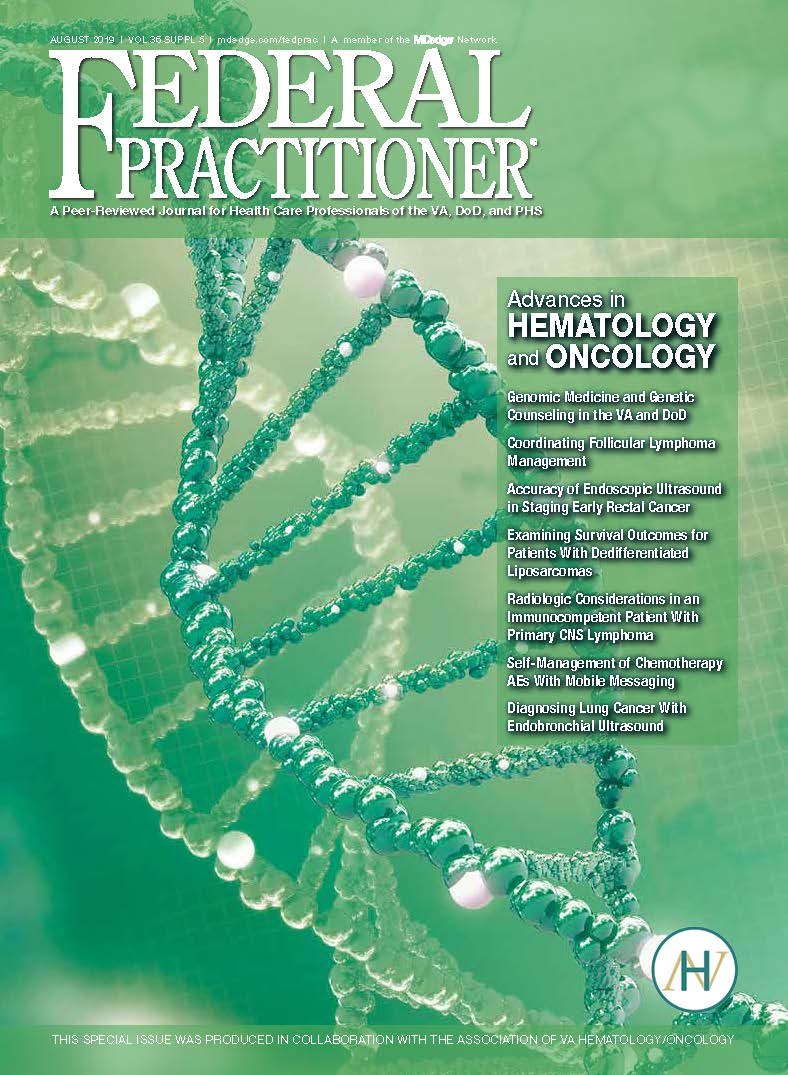
Click here to access August 2019 Advances in Hematology and Oncology
Table of Contents
- Partners in Oncology Care: Coordinated Follicular Lymphoma Management
- Accuracy of Endoscopic Ultrasound in Staging of Early Rectal Cancer
- Treatment Facility: An Important Prognostic Factor for Dedifferentiated Liposarcoma Survival
- Review of Radiologic Considerations in an Immunocompetent Patient With Primary Central Nervous System Lymphoma
- Use of Mobile Messaging System for Self-Management of Chemotherapy Symptoms
- Timely Diagnosis of Lung Cancer in a Dedicated VA Referral Unit With Endobronchial Ultrasound
- Research News: Darolutamide Approved for Nonmetastatic CRPC
- Roundtable: Genomic Medicine and Genetic Counseling in the VA and DoD

Click here to access August 2019 Advances in Hematology and Oncology
Table of Contents
- Partners in Oncology Care: Coordinated Follicular Lymphoma Management
- Accuracy of Endoscopic Ultrasound in Staging of Early Rectal Cancer
- Treatment Facility: An Important Prognostic Factor for Dedifferentiated Liposarcoma Survival
- Review of Radiologic Considerations in an Immunocompetent Patient With Primary Central Nervous System Lymphoma
- Use of Mobile Messaging System for Self-Management of Chemotherapy Symptoms
- Timely Diagnosis of Lung Cancer in a Dedicated VA Referral Unit With Endobronchial Ultrasound
- Research News: Darolutamide Approved for Nonmetastatic CRPC
- Roundtable: Genomic Medicine and Genetic Counseling in the VA and DoD

Pediatric Dermatology: Summer 2019
Click here to read the supplement.
The 2019 Pediatric Dermatology supplement features a selection of articles published in Dermatology News and Pediatric News, with commentary by Lawrence F. Eichenfield, MD, and Robert Sidbury, MD.
Dr. Eichenfield is chief of pediatric and adolescent dermatology at Rady Children’s Hospital in San Diego. He is vice chair of dermatology and professor of dermatology and pediatrics at the University of California, San Diego.
Dr. Sidbury is chief of dermatology at Seattle Children’s Hospital and professor, department of pediatrics, University of Washington, Seattle.
Highlights include:
- Atopic dermatitis update: The field continues to evolve
- When treating impetigo, be aware of antibiotic resistance patterns
- Don’t sweat axillary hyperhidrosis
- Premature children’s skin is different
Click here to read the supplement.
Click here to read the supplement.
The 2019 Pediatric Dermatology supplement features a selection of articles published in Dermatology News and Pediatric News, with commentary by Lawrence F. Eichenfield, MD, and Robert Sidbury, MD.
Dr. Eichenfield is chief of pediatric and adolescent dermatology at Rady Children’s Hospital in San Diego. He is vice chair of dermatology and professor of dermatology and pediatrics at the University of California, San Diego.
Dr. Sidbury is chief of dermatology at Seattle Children’s Hospital and professor, department of pediatrics, University of Washington, Seattle.
Highlights include:
- Atopic dermatitis update: The field continues to evolve
- When treating impetigo, be aware of antibiotic resistance patterns
- Don’t sweat axillary hyperhidrosis
- Premature children’s skin is different
Click here to read the supplement.
Click here to read the supplement.
The 2019 Pediatric Dermatology supplement features a selection of articles published in Dermatology News and Pediatric News, with commentary by Lawrence F. Eichenfield, MD, and Robert Sidbury, MD.
Dr. Eichenfield is chief of pediatric and adolescent dermatology at Rady Children’s Hospital in San Diego. He is vice chair of dermatology and professor of dermatology and pediatrics at the University of California, San Diego.
Dr. Sidbury is chief of dermatology at Seattle Children’s Hospital and professor, department of pediatrics, University of Washington, Seattle.
Highlights include:
- Atopic dermatitis update: The field continues to evolve
- When treating impetigo, be aware of antibiotic resistance patterns
- Don’t sweat axillary hyperhidrosis
- Premature children’s skin is different
Click here to read the supplement.
Acne and Rosacea - July 2019 Supplement
The 2019 Acne & Rosacea supplement features a selection of articles on these two topics published in Dermatology News during the previous year, with commentaries by dermatologists Hilary E. Baldwin, MD, and Julie C. Harper, M.D., both past presidents of the American Acne & Rosacea Society. They were also both members of the American Academy of Dermatology work group that developed the AAD’s updated guidelines on the management of acne vulgaris, published in 2016.
Highlights include:
- The global incidence of rosacea
- Rosacea likely undertreated in skin of color
- The impact of isotretinoin on the dermal microbiome
- Laser treatments of acne and rosacea
The 2019 Acne & Rosacea supplement features a selection of articles on these two topics published in Dermatology News during the previous year, with commentaries by dermatologists Hilary E. Baldwin, MD, and Julie C. Harper, M.D., both past presidents of the American Acne & Rosacea Society. They were also both members of the American Academy of Dermatology work group that developed the AAD’s updated guidelines on the management of acne vulgaris, published in 2016.
Highlights include:
- The global incidence of rosacea
- Rosacea likely undertreated in skin of color
- The impact of isotretinoin on the dermal microbiome
- Laser treatments of acne and rosacea
The 2019 Acne & Rosacea supplement features a selection of articles on these two topics published in Dermatology News during the previous year, with commentaries by dermatologists Hilary E. Baldwin, MD, and Julie C. Harper, M.D., both past presidents of the American Acne & Rosacea Society. They were also both members of the American Academy of Dermatology work group that developed the AAD’s updated guidelines on the management of acne vulgaris, published in 2016.
Highlights include:
- The global incidence of rosacea
- Rosacea likely undertreated in skin of color
- The impact of isotretinoin on the dermal microbiome
- Laser treatments of acne and rosacea
Opioids: Overprescribing, alternatives, and clinical guidance
Federal Health Care Data Trends 2019
Click here to access Federal Health Care Data Trends 2019
Table of Contents
- American Indian/Alaska Native
- Women's Health
- Department of Veterans Affairs
- Neurologic Disorders
- Diabetes Mellitus
- Infectious Disease
- Hematology/Oncology
- Mental Health
- Respiratory Disorders
- Gastrointestinal Disorders
- Department of Defense
- References

Click here to access Federal Health Care Data Trends 2019
Table of Contents
- American Indian/Alaska Native
- Women's Health
- Department of Veterans Affairs
- Neurologic Disorders
- Diabetes Mellitus
- Infectious Disease
- Hematology/Oncology
- Mental Health
- Respiratory Disorders
- Gastrointestinal Disorders
- Department of Defense
- References

Click here to access Federal Health Care Data Trends 2019
Table of Contents
- American Indian/Alaska Native
- Women's Health
- Department of Veterans Affairs
- Neurologic Disorders
- Diabetes Mellitus
- Infectious Disease
- Hematology/Oncology
- Mental Health
- Respiratory Disorders
- Gastrointestinal Disorders
- Department of Defense
- References

Highlights of the 2019 Update to the Global Initiative for Chronic Obstructive Lung Disease (GOLD) Report and Their Application in Practice
Click here to read the supplement
Key Points
- The Global Initiative for Chronic Obstructive Lung Disease (GOLD) program releases consensus reports to provide evidence-based recommendations about the management and prevention of chronic obstructive pulmonary disease (COPD);
- The most recent major update occurred in November 2018.
- The 2019 GOLD strategy for COPD assessment now separates lung function measures from respiratory symptom scores because lung function is only weakly correlated to symptoms and health status impairment.
- The updated strategy now provides recommendations for initiation and maintenance of pharmacologic therapy in patients based on exacerbation risk and symptom scores, with consideration of blood eosinophil counts.
- Management of exacerbations now includes the prevention of future exacerbations, which may require adding another medication to the patient's maintenance regimen.
About the Authors:

Jennifer Banfield, APRN, FNP
Clinical Research Coordinator
Boys Town National Research Hospital
Boys Town, Nebraska

Kevin R. Murphy, MD
Director of Allergy, Asthma, and Pulmonary Research
Boys Town National Research Hospital
Boys Town, Nebraska
University of Nebraska Medical Center
Creighton University School of Medicine
Omaha, Nebraska
Click here to read the supplement
Key Points
- The Global Initiative for Chronic Obstructive Lung Disease (GOLD) program releases consensus reports to provide evidence-based recommendations about the management and prevention of chronic obstructive pulmonary disease (COPD);
- The most recent major update occurred in November 2018.
- The 2019 GOLD strategy for COPD assessment now separates lung function measures from respiratory symptom scores because lung function is only weakly correlated to symptoms and health status impairment.
- The updated strategy now provides recommendations for initiation and maintenance of pharmacologic therapy in patients based on exacerbation risk and symptom scores, with consideration of blood eosinophil counts.
- Management of exacerbations now includes the prevention of future exacerbations, which may require adding another medication to the patient's maintenance regimen.
About the Authors:

Jennifer Banfield, APRN, FNP
Clinical Research Coordinator
Boys Town National Research Hospital
Boys Town, Nebraska

Kevin R. Murphy, MD
Director of Allergy, Asthma, and Pulmonary Research
Boys Town National Research Hospital
Boys Town, Nebraska
University of Nebraska Medical Center
Creighton University School of Medicine
Omaha, Nebraska
Click here to read the supplement
Key Points
- The Global Initiative for Chronic Obstructive Lung Disease (GOLD) program releases consensus reports to provide evidence-based recommendations about the management and prevention of chronic obstructive pulmonary disease (COPD);
- The most recent major update occurred in November 2018.
- The 2019 GOLD strategy for COPD assessment now separates lung function measures from respiratory symptom scores because lung function is only weakly correlated to symptoms and health status impairment.
- The updated strategy now provides recommendations for initiation and maintenance of pharmacologic therapy in patients based on exacerbation risk and symptom scores, with consideration of blood eosinophil counts.
- Management of exacerbations now includes the prevention of future exacerbations, which may require adding another medication to the patient's maintenance regimen.
About the Authors:

Jennifer Banfield, APRN, FNP
Clinical Research Coordinator
Boys Town National Research Hospital
Boys Town, Nebraska

Kevin R. Murphy, MD
Director of Allergy, Asthma, and Pulmonary Research
Boys Town National Research Hospital
Boys Town, Nebraska
University of Nebraska Medical Center
Creighton University School of Medicine
Omaha, Nebraska
